Collection19 results
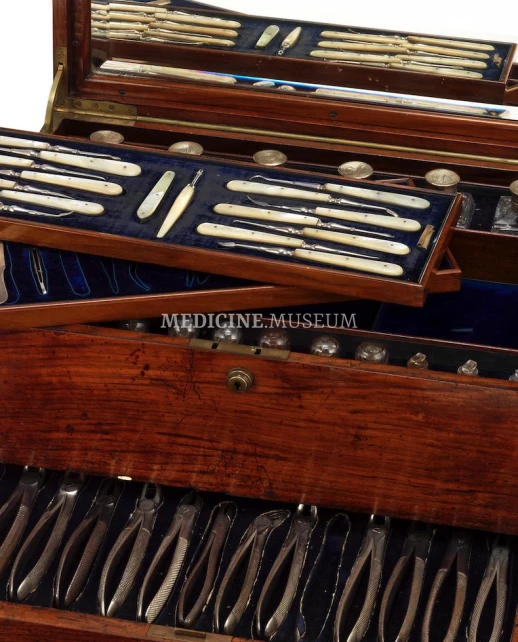
England , 1880
A fine presentation Dentistry and Surgical Chest, English, late 19th century is contained in the walnut brass-bound case, with an engraved brass plaque on the lid with a leopard coat of arms inscribed LABOR OMNIA VINCIT, C.I.H. ("Work conquers all"), with four Bramah locks and associated key for the lid and the front and side compartments. The compartments (three with beveled mirrors), fitted with blue velvet covering lodgements for instruments, contain cut-glass bottles with glass stopper and hinged metal cap bearing the same motto, a Claudius Ash & Sons booklet with dental tin foil leaves, dental and surgical instruments with mother-of-pearl (nacre) or tortoiseshell handles, some with decorative carved mother-of-pearl handles. The instruments are marked: SAVIGNY & CO, LONDON; MAW SON & THOMPSON, SWS, and SMALE. Property from a private collection, acquired in the mid-20th century. By repute commissioned and used by a dental surgeon aboard an early Transatlantic luxury liner.
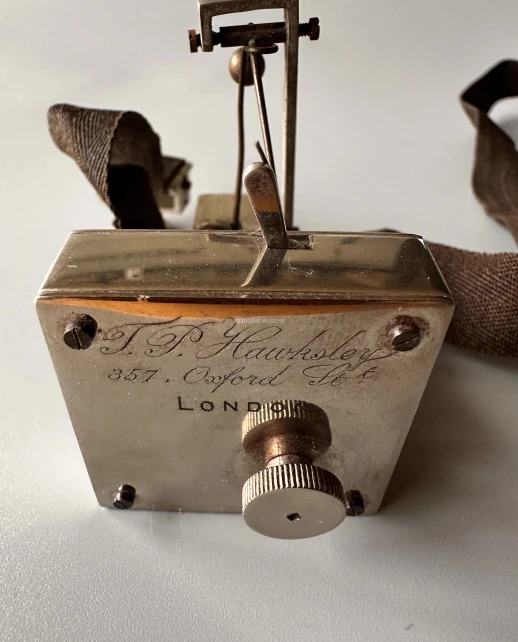
England , 1890
Dudgeon's sphygmograph by Hawksley, English, c.1890, the clockwork housing engraved 'T. P. Hawksley 357 Oxford St London', with clockwork mechanism to one side, dark fabric wrist strap, in original black leather covered case, lined in purple velvet, with the trade logo inside the lid.
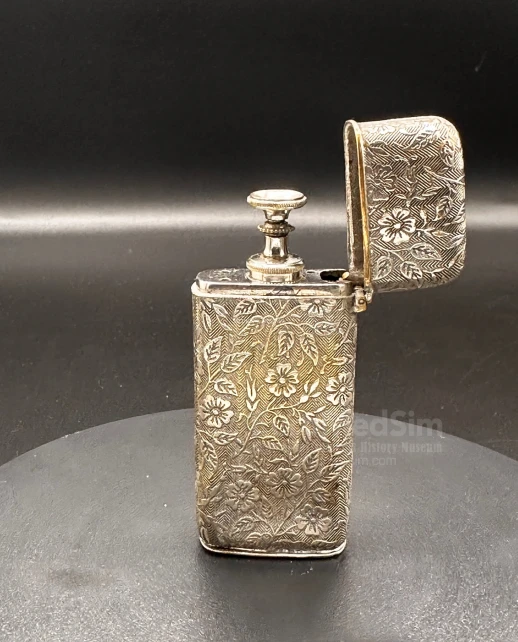
USA , 1901
Hypodermic Pravaz syringe in a rich floral ornamented metal case with an inscription on the bottom "T.A.M. Ear & Throat Class. 1901"
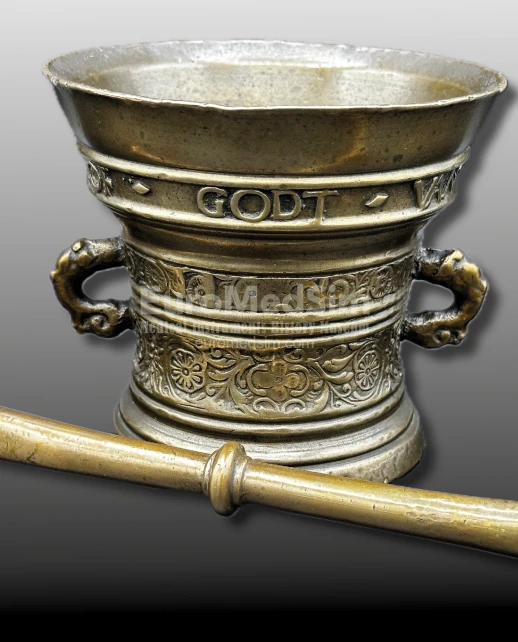
Netherlands , 1638
Mortar and pestle, baroque, The Netherlands, 1638. Bell shaped, two carved handles, and two floral friezes. On the upper part circular inscription: LOF * GODT * VAN * AL * Ao * 1638 (Praise God by all, in the year 1638), 11 cm
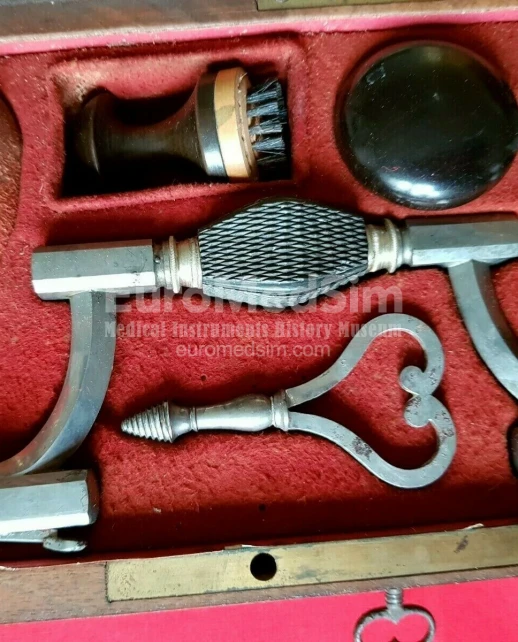
France , 1820
The rare French amputation kit, early 19 century, contains the typical instruments of a trauma and military surgeon, such as brace and bit cranial trephine, elevators and rugines, amputation saw, brush to clean the operative field. The case has two compartments, has original key.
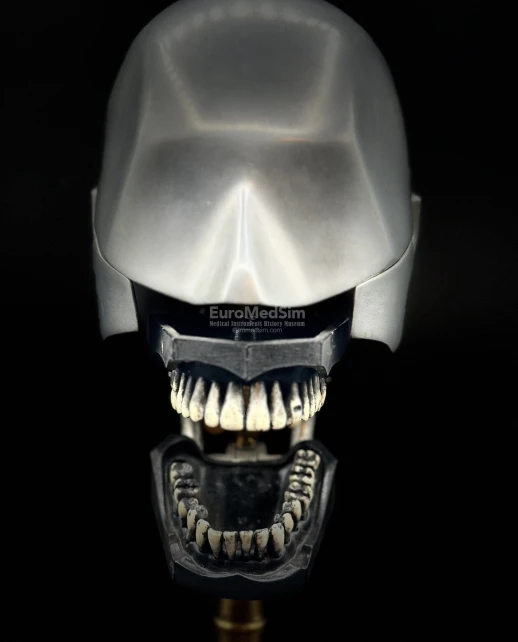
USA
A rare American dental training phantom head with an articulated mandible made of aluminium and plastic by Columbia Dentoform Corp., first half of the XX cent. On the lower side of the plastic mandibula written: 'R362 / COLUMBIA DENTOFORM CORP. / NEW YORK.' The scull part of the head is made of silver-colored metal alloy, and the teeth and jaws of black and white plastic. The phantom is mounted on the bronze pole and is housed in a glass dome.
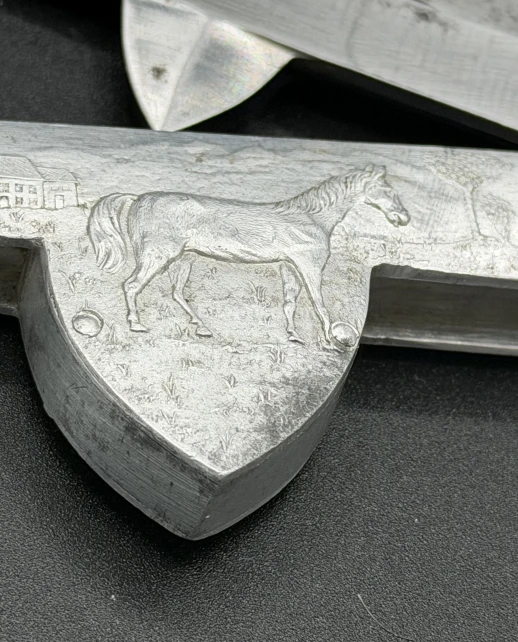
France , 1890
French Belle Époque knife with aluminum handle scales, one knife blade, and three veterinary-sized lancets. The scales are stamped "Qualité BG Superieure" and on reverse "Dépose" with a horse on one side and a cow on the other. Ca. 1890–1915, France, probably Thiers region (Puy-de-Dôme)
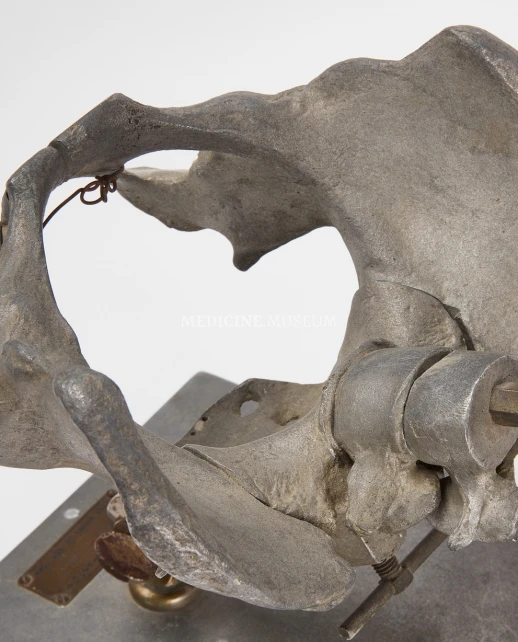
USA , 1920
Stander Female Pelvis Phantom, a Manikin for Teaching and Practice of Obstetrics (Educational Aid). Made by Clay Adams Co. New York, 1920
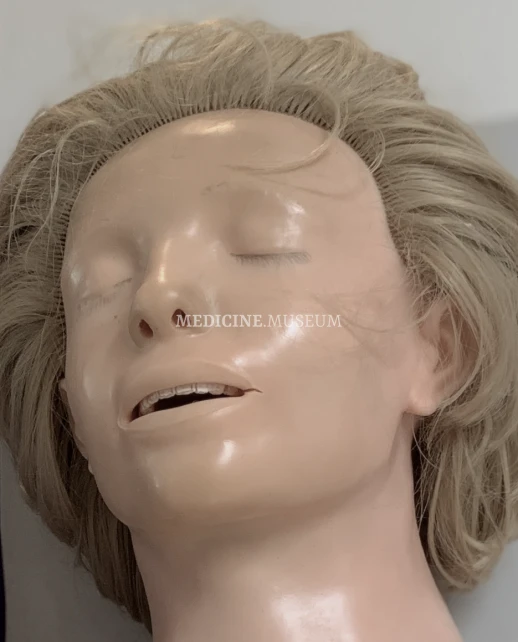
Norway , 1965
Anatomic Anne, a manikin for the mouth-to-mouth respiration and chest compressions training, a sister-product of the globally known Resusci Anne CPR training torso invented in the 1960s by Åsmund Lærdal, Norwegian entrepreneur.
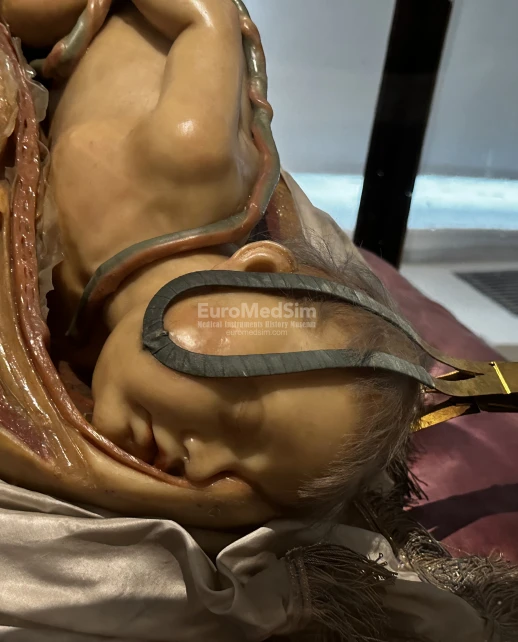
Austria , 1784
The Josephinum is the owner of one of the world's largest collections of anatomical wax models from the 18th century, commissioned by the Austrian Emperor Joseph II. The order of 1,192 pieces was made between 1781 and 1784 and fulfilled in Florence under the supervision of the physicist, anatomist and naturalist Felice Fontana, physician and anatomist Paolo Mascagni, and modeller Clemente Susini. Today, the unique collection is on display at the Josephinum and includes full-length models as well as individual body parts, organs and systems. The exhibits are stored in original vitrines of rosewood and Venetian glass.
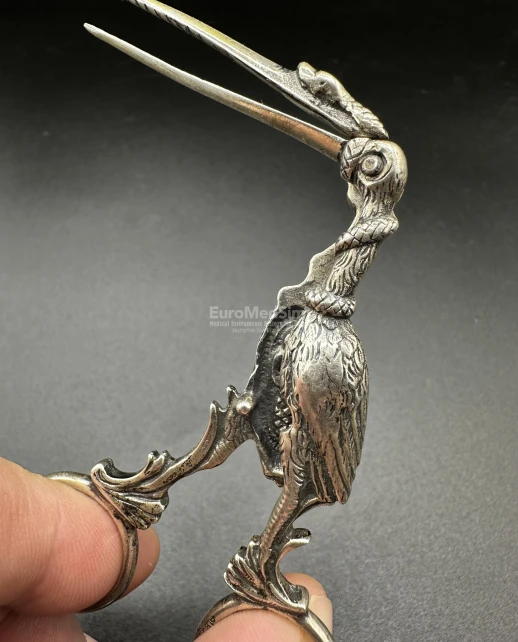
Germany , 1800
A umbilical clamp in the shape of a stork made of 835 silver. Inside the stork is a swaddled baby, which becomes visible when the handles are opened. Used by the midwifes in 19. century to compress and bind the umbilical cord.
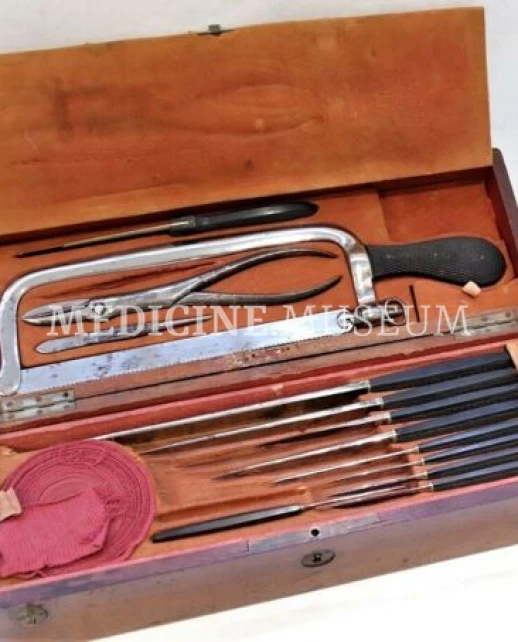
France , 1880
The rare French amputation kit, 18 century, contains the typical instruments of a trauma and military surgeon, such as hand drills, trephine heads, amputation saw, brush to clean the operative field made by Collin / Charrière á Paris. The case has two compartments, has original key.
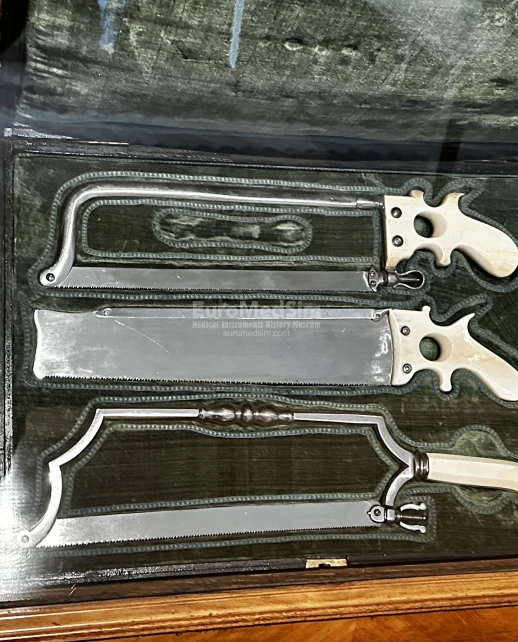
Austria , 1785
A collection of 65 sets of surgical instruments made by Viennese craftsman Joseph Malliard under the direction of Giovanni Alessandro Brambilla, an Italian-born Austrian surgeon eighteenth-century innovator in military surgery. Today, this collection, known as the “Instrumentarium Chirurgicum Militare Austriacum” is on display at the Josephinum Museum, Vienna
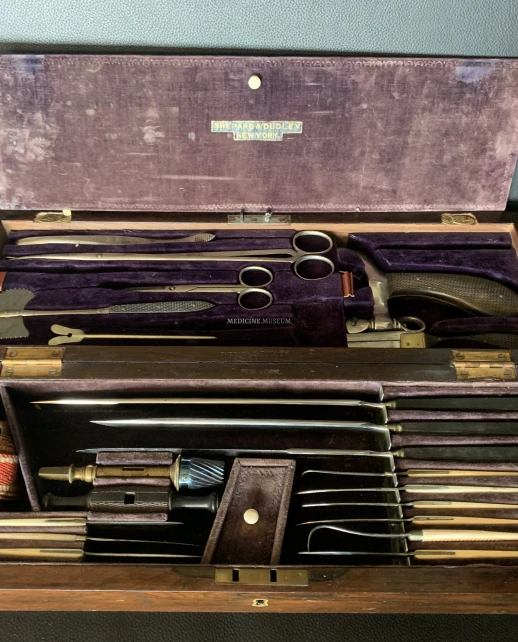
USA , 1870
American Amputation and trepanation cased set, by Shepard & Dudley NY, late XIX century. The wooden case contains the typical instruments of a trauma surgeon, such as amputation saw, trephine head with handle, screw tourniquet. The amputation saw and three amputation knives have ebony handles, the rest hand instruments like scalpels and hook have ivory handles. The case has two compartments lined with violet velvet. On the cover of the upper compartment, the inscription "SHEPARD & DUDLEY * NEW YORK".
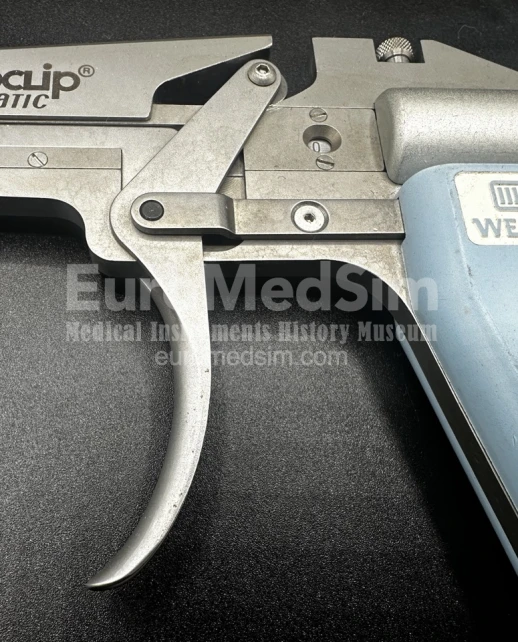
USA , 1985
Hemoclip Automatic Applier by Edward Weck cat. nr. 527700, USA, ca. 1985
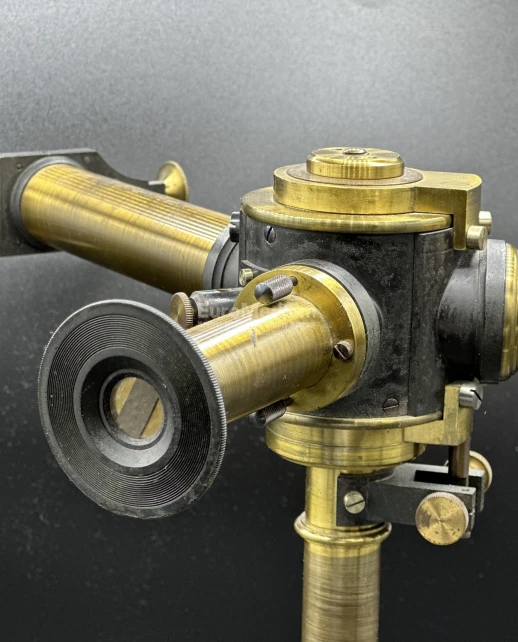
Germany , 1890
The rare spectrometer by „Franz Schmidt & Haensch", Berlin, end of 19. century. Constructed of lacquered and ebonized brass, it features a brown enamelled tripod base made of cast iron. The main assembly consists of a central pillar mounted on the tripod base, supporting a drum that holds the prism and three tubes
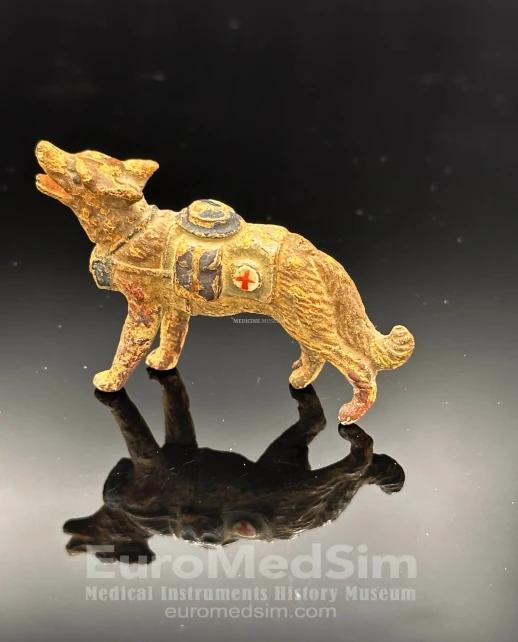
Germany , 1935
Sanitary dog, standing and barking, Nr. 5/186, production period: 1928-1939. Toy-soldiers by Lineol, Germany
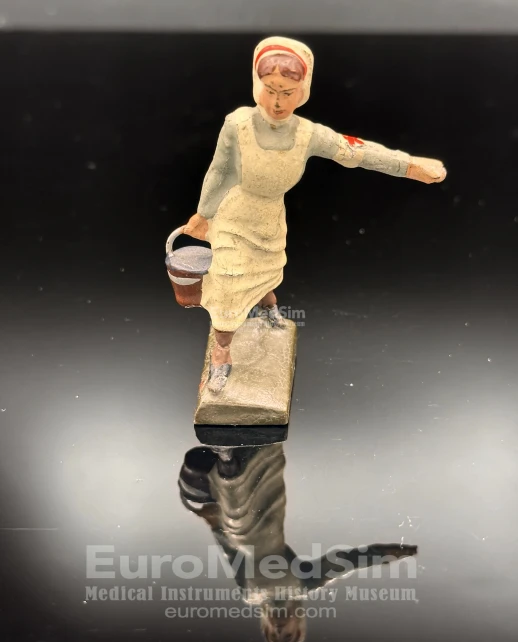
Germany , 1935
Nurse carrying a bucket, Nr. 5/181. Toy-soldiers, figure, ca. 1935, Lineol, Germany
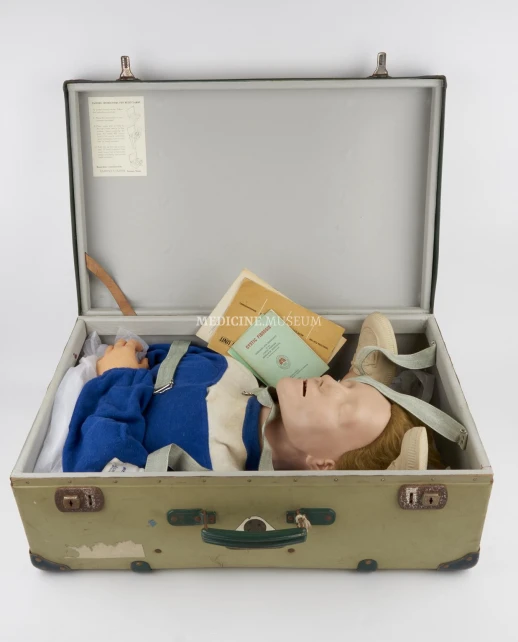
Norway , 1965
Resusci Anne, a globally known training manikin for the mouth-to-mouth respiration and chest compressions training. This Cardio-Pulmonary Resuscitation (CPR) educational tool was invented in the 1960s by Åsmund Lærdal, Norwegian entrepreneur.